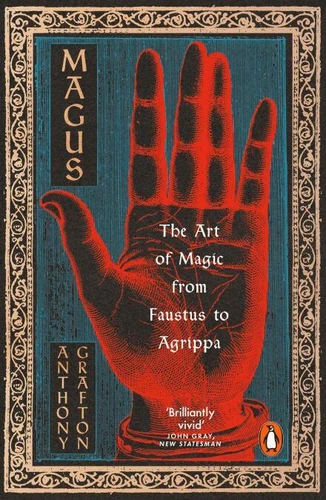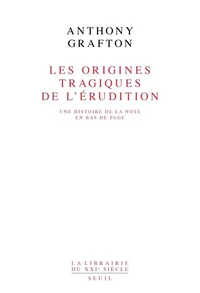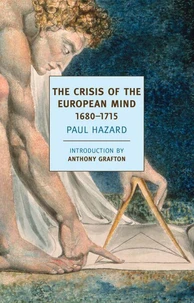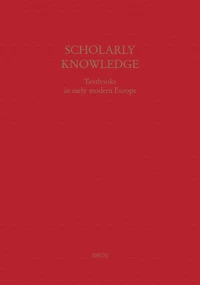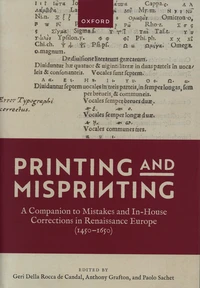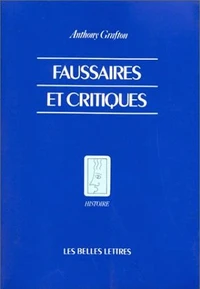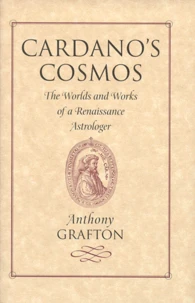Magus. The Art of Magic from Faustus to Agrippa
Par :Formats :
Disponible dans votre compte client Decitre ou Furet du Nord dès validation de votre commande. Le format ePub protégé est :
- Compatible avec une lecture sur My Vivlio (smartphone, tablette, ordinateur)
- Compatible avec une lecture sur liseuses Vivlio
- Pour les liseuses autres que Vivlio, vous devez utiliser le logiciel Adobe Digital Edition. Non compatible avec la lecture sur les liseuses Kindle, Remarkable et Sony
- Non compatible avec un achat hors France métropolitaine
 , qui est-ce ?
, qui est-ce ?Notre partenaire de plateforme de lecture numérique où vous retrouverez l'ensemble de vos ebooks gratuitement
Pour en savoir plus sur nos ebooks, consultez notre aide en ligne ici
- Nombre de pages304
- FormatePub
- ISBN978-1-80206-437-7
- EAN9781802064377
- Date de parution04/01/2024
- Protection num.Adobe DRM
- Infos supplémentairesepub
- ÉditeurPenguin
Résumé
A revelatory account of the magus - the learned magician - and his place in the world of Renaissance EuropeAt the heart of the extraordinary ferment of the High Renaissance stood a distinctive, strange and beguiling figure: the magus. An unstable mix of scientist, bibliophile, engineer, fabulist and fraud, the magus ushered in modern physics and chemistry while also working on everything from secret codes to siege engines to magic tricks.
Anthony Grafton's wonderfully original book discusses the careers of men who somehow managed to be both figures of startling genius and - by some measures - credulous or worse. The historical Faust, Marsilio Ficino, Pico della Mirandola, Johannes Trithemius and Heinrich Cornelius Agrippa are all fascinating characters, closely linked to monarchs, artists and soldiers and sitting at the heart of any definition of why the Renaissance was a time of such restless innovation.
The study of the stars, architecture, warfare, even medicine: all of these and more were revolutionized in some way by the experiments and tricks of these extraordinary individuals. No book does a better job of allowing us to understand the ways that magic, religion and science were once so intertwined and often so hard to tell apart.
Anthony Grafton's wonderfully original book discusses the careers of men who somehow managed to be both figures of startling genius and - by some measures - credulous or worse. The historical Faust, Marsilio Ficino, Pico della Mirandola, Johannes Trithemius and Heinrich Cornelius Agrippa are all fascinating characters, closely linked to monarchs, artists and soldiers and sitting at the heart of any definition of why the Renaissance was a time of such restless innovation.
The study of the stars, architecture, warfare, even medicine: all of these and more were revolutionized in some way by the experiments and tricks of these extraordinary individuals. No book does a better job of allowing us to understand the ways that magic, religion and science were once so intertwined and often so hard to tell apart.
A revelatory account of the magus - the learned magician - and his place in the world of Renaissance EuropeAt the heart of the extraordinary ferment of the High Renaissance stood a distinctive, strange and beguiling figure: the magus. An unstable mix of scientist, bibliophile, engineer, fabulist and fraud, the magus ushered in modern physics and chemistry while also working on everything from secret codes to siege engines to magic tricks.
Anthony Grafton's wonderfully original book discusses the careers of men who somehow managed to be both figures of startling genius and - by some measures - credulous or worse. The historical Faust, Marsilio Ficino, Pico della Mirandola, Johannes Trithemius and Heinrich Cornelius Agrippa are all fascinating characters, closely linked to monarchs, artists and soldiers and sitting at the heart of any definition of why the Renaissance was a time of such restless innovation.
The study of the stars, architecture, warfare, even medicine: all of these and more were revolutionized in some way by the experiments and tricks of these extraordinary individuals. No book does a better job of allowing us to understand the ways that magic, religion and science were once so intertwined and often so hard to tell apart.
Anthony Grafton's wonderfully original book discusses the careers of men who somehow managed to be both figures of startling genius and - by some measures - credulous or worse. The historical Faust, Marsilio Ficino, Pico della Mirandola, Johannes Trithemius and Heinrich Cornelius Agrippa are all fascinating characters, closely linked to monarchs, artists and soldiers and sitting at the heart of any definition of why the Renaissance was a time of such restless innovation.
The study of the stars, architecture, warfare, even medicine: all of these and more were revolutionized in some way by the experiments and tricks of these extraordinary individuals. No book does a better job of allowing us to understand the ways that magic, religion and science were once so intertwined and often so hard to tell apart.

